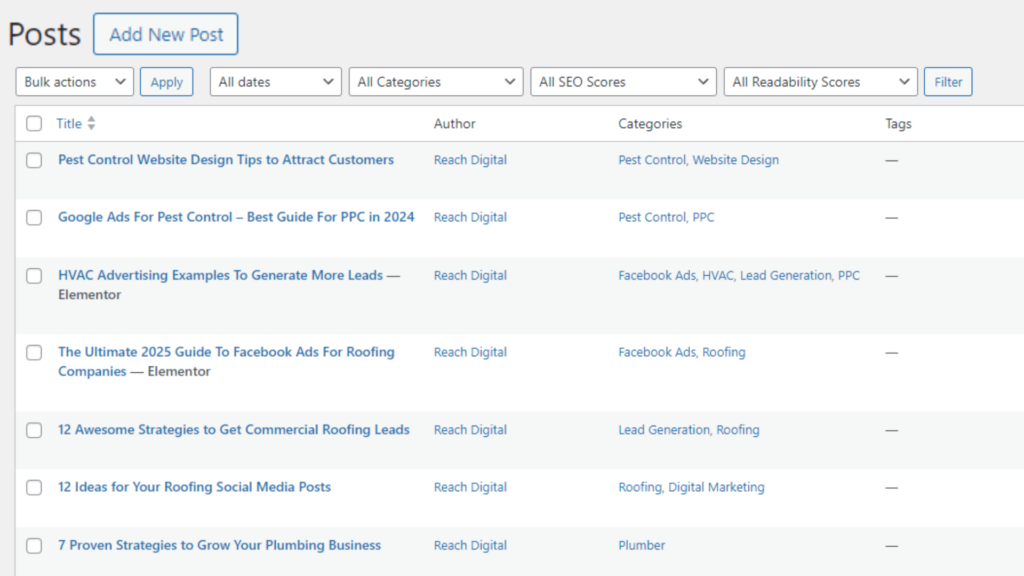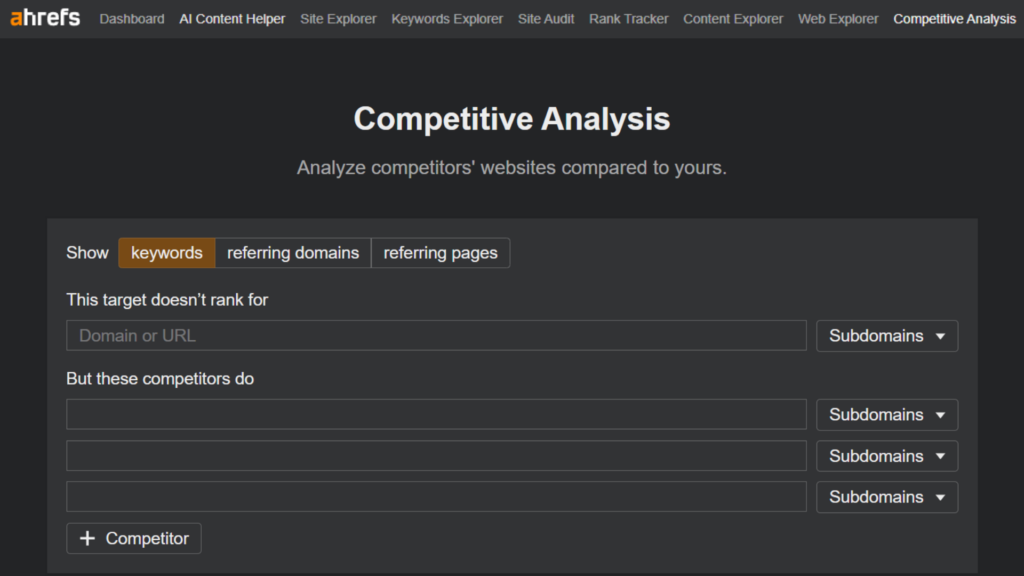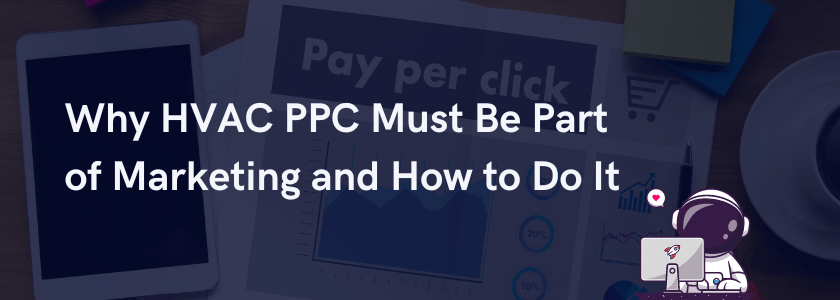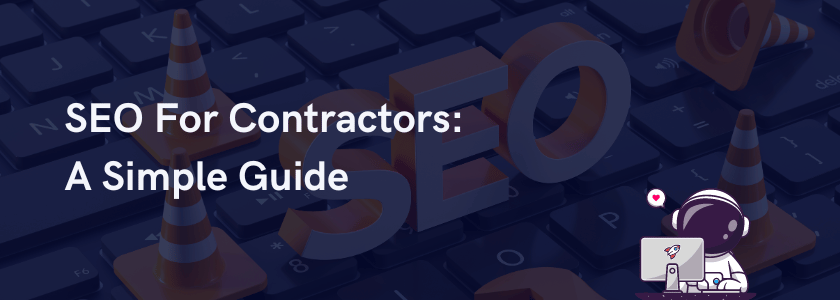Among the most common questions that SEO professionals get is, “How long does SEO take?” The best answer we can get is within the range of four months up to a year. This timeframe is based on three key variables: content, inbound links, and competition (in no particular order).
These three specific criteria play a significant role in how long it will take for SEO to start yielding results.
The Role of Content in How Long SEO Takes
Content published on your website plays a crucial role in how quickly the SEO strategy you put into place will yield results. One of the first and most important things to keep in mind when creating content is that quality matters A LOT.
Gone are the days when you simply need to come up with hundreds of short articles to affect your search engine ranking positively. In the same way, creating 4,000-word write-ups won’t do your site any good neither.
As a matter of fact, a minimum word count or ideal length doesn’t exist. Instead, you need to make sure that the content is long enough to solve other people’s problems, specifically those of your website visitors.
When to Publish New Content?
Contrary to popular belief, publishing new content in bulk wouldn’t be seen by search engines, such as Google, as unnatural. Therefore, it wouldn’t have any effect on your site’s ranking whatsoever. So if you have great and quality content that’s ready to be posted, there’s no reason not to do so at once.
Remember, the sooner you get the content on your site, the sooner it can positively impact its ranking. On the other hand, delaying it for another time will only make your SEO process longer.
Indeed, a webpage’s ranking correlates with its age. However, other factors apart from age cause newer pages not to rank as well as those posted earlier. But instead of merely waiting for your posts to age, what you can do is publish new content following a set schedule and do this consistently.
This strategy is more effective than posting new content in bunches for two specific reasons:
- Google sees the pattern and will recognize that new content is being posted on your website regularly. As a result, the search engine encourages its “spiders” to crawl your site more frequently and speed up your SEO efforts in the process.
- Publishing new posts regularly encourage audiences to visit your website more frequently. This trend lets Google know that your site users are having a positive experience, which speeds up your SEO efforts as a result.
Removing and Improving Content
Another way you can utilize content to affect your SEO process is by removing it. You read it right. Deleting content also plays a positive role in speeding up SEO. You simply need to determine which content to discard, which to keep as is and improve further.
While your primary goal is to create unique and helpful content that helps users solve their problems, getting rid of underperforming pages also helps boost your site’s overall performance in search engine results pages.
Finally, we mentioned improving content. Turns out, doing that doesn’t just make your post more relevant and readworthy. Higher-quality content also impacts your link-building efforts since they usually get more links compared to lower-quality posts. So, if you’re doing everything right with content, you’re essentially hitting two targets with just one shot.

The Role of Inbound Links in How Long SEO Takes
Of the three types of links, namely internal, inbound, and outbound, inbound links, also known as backlinks or those from other websites of a different domain name, are the hardest to acquire. Usually, content creators use the information on the page they’re linking to as a supplement to the information they’re putting on their own site.
Simply put, an inbound link is an indication that you have high-quality content that’s trustworthy and your webpage has authority and credibility. Most people assume that the more links your page gets, the more votes of trust and confidence it gets.
While this can improve your site’s performance on search result pages, the quantity of links isn’t all that matters. Link quality is equally important, and Google also evaluates them. Time and again, attempts to make links seem like votes of trust have been rampant using things such as:
- Q&A sites
- Online forums
- Blog comments
- Social bookmarking
- Social media profiles
- Article directories
- Guestbooks
- Wikis
These unnatural links are identified as fake by Google right away, although there are instances wherein it takes a while for search engines to recognize them. It’s best to avoid such links at all costs since they affect your site negatively, particularly the ranking of your web pages in question.
Keep in mind that only good and natural links from other websites obtained by publishing quality content that is credible, authoritative, and trustworthy will help with your page’s ranking.
Generally, the faster you earn these relevant and high-quality links, the quicker you’ll rank. Just make sure that the speed at which your page gains links should’ve stable growth. By utilizing link-building strategies that adhere to Google’s guidelines, that progression should happen naturally.
The Role of Competition in How Long SEO Takes
One thing’s for sure; you do learn a lot by analyzing the competition, especially those that are dominating search results. Performing a competitive analysis doesn’t involve getting their trade secrets. Still, the insights you’ll learn will prove valuable enough for your own SEO strategies, such as patterns, keywords, and even new practices worthy of trying.
The help you’ll be gaining in targeting better keywords related to your industry saves you a lot of time in the long run. The insights you acquire into proven strategies that yield results already give you an edge by enabling you to skip starting from scratch.
Indeed, we shouldn’t neglect to mention that the competition does play a significant role in making sure your SEO strategy works. Unless you’re in a particular niche, it’s almost certain that you’ll be facing stiff competition in search engine results pages.
Think about the situation like this: demand drives companies in a particular niche, which leads to increased competition. For example, there are probably hundreds of medical clinics, dentists, or veterinarians in one city, each with a website that’s trying to rank. The problem is, there are only ten spots on the first page of Google.
The fierce competition is enough to cause your SEO strategy to take longer to yield favorable results. Meanwhile, lesser or an entire lack of competition alone should be enough to ensure a high ranking for your page at a quicker rate.
Therefore, if you’re actively trying to figure out how long your SEO efforts will take to pay off, you must also factor in the demand and level of competition that currently surrounds your product and industry.

How Long Does It Really Take for SEO to Work?
Now that we’ve been able to pinpoint the top factors that can affect the SEO strategies you put into place, it’s easier to understand why SEO takes longer to work than other methods.
Pinpointing the exact amount of time it takes for you to see results can be quite a challenge. If we consider all factors, it typically takes between four to six months from the start of your campaign to gain organic traffic from SEO.
As such, you need to be prepared to invest several months and allow up to a year before seeing these results. Even then, you can’t say with certainty that you’ve overcome all obstacles. Statistics show that a measly 5.7% of pages will rank in the top 10 search results within a year for at least one keyword.
Still, once you’re able to crack the top 10 list, the last thing you’d want to do is rest on your laurels. Again, your competitors will always attempt to take that position from you regardless of whether they’re current or just emerging.
To put it simply, SEO is an ongoing effort that will never be really complete.
To know more about SEO, including emerging trends to watch out for this year, contact us today or visit our website.





